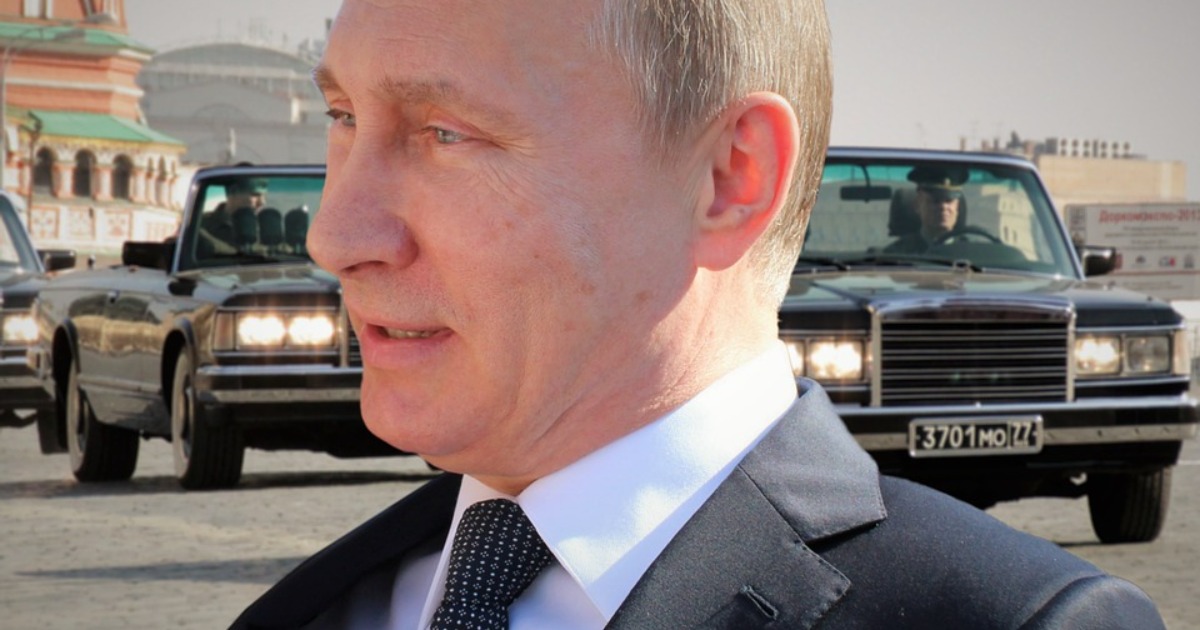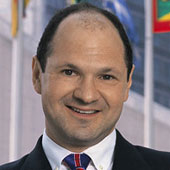Putin and the Slow-Burn US Civil War
An overly lengthy transition period can be highly destabilizing even in the U.S. — a nation that deems itself a mature democracy.
November 19, 2020

Donald Trump is still refusing to concede the 2020 election and has not allowed the incoming Biden Administration to begin the transition.
Dangerous interlude
Periods of leadership vacuum are by their very nature notoriously dangerous. In mature democracies — and the United States certainly considers itself as one — this shouldn’t be so. But it is.
Recall that in medieval Rome, the death of the sitting Pope was usually followed by riots and settling of scores by the city’s princely clans. Putting an end to the chaos was an important incentive for the cardinals to elect a successor as quickly as possible.
Remember 9/11 — and 1860!
In the United States itself, during the “Secession Winter” of 1860-61, after Abraham Lincoln had been elected President — but before he could assume power — the Southern states broke away and formed the Confederacy. They thus laid the foundations for the U.S. civil war.
And, as most contemporary Americans should be aware, a prolonged dispute surrounding the 2000 election kept George W. Bush from installing his administration.
This is deemed to have contributed to his team missing the warning signs of the impending September 11, 2001 terrorist attacks.
The drumbeat of 2020
In the current highly radicalized U.S. political environment, the drumbeat of a “new civil war” has been loud and clear. “Patriotic” militias — consisting of armed right-wingers with military training — have openly talked of rebellion, calling themselves “boogaloo boys.”
A seasoned and responsible government could deal with all this. But Donald Trump — ever irresponsible — keeps repeating baseless accusations of voter fraud and busies himself stoking anger among his followers.
Outdated time lines
Now, in a mature and modern democracy, there would be an easy way to put an end to all such shenanigans and the ultra-risky business they mean – both at home and internationally.
Simply put, we no longer live in the age when carriages drawn by horses represent the fastest mode of transportation. The time between the date of the election — always the first Tuesday in November — and the date of the inauguration on January 20th the following year, provides a 70-day interregnum to a new administration. It is too long for modern times.
The UK example
In the UK — not unwisely — it’s about clearing out the next morning. While such a rapid transition has its own drawbacks, the Founding Fathers — having no experience with the republican form of government — made this handover process even worse.
They turned the United States’ chief executive into a person similar to a king — endowing him with quite a lot of power. Elected for four years, in certain ways he has a complete carte blanche to implement any policy he wants.
He has few limits on firing government officials at a whim — no due process needed.
He can exit many international agreements at his own leisure — even when that amounts to the height of preposterousness and irresponsibility (witness Trump’s exiting the WHO). He can also pull out troops and place them abroad pretty much as he sees fit.
Yes, there is a minor risk of impeachment, for crimes and “misdemeanors” — but not for policy decisions.
What happened to “checks and balances”?>
It is remarkable how easily the much-vaunted system of checks and balances crumbled under President Trump — as the legislative and judicial branches allowed him to become an absolute monarch ruling by decree.
In fact, Trump claimed repeatedly that under Article Two of the Constitution he can do whatever he wants. Nor does the Constitution have any real provisions for the peaceful transition of power. All the obstruction of his successor that Trump is engaging in is perfectly legal.
Now that he has been voted out, he will keep his unlimited powers for eleven weeks — plenty of time to stir trouble and egg his supporters on.
And then there is Vladimir Putin, a man who is always eager to insert himself craftily into any juicy trouble spot — the exploitation of which strengthens Russia’s hand and nefarious alliance games.
Putin has long been bent on reversing Russia’s defeat in the Cold War — and on restoring the dominance it lost with the collapse of the Soviet Empire.
Stirring civil unrest
To boot, Putin has stirred civil unrest and supported separatist movements in many regions of the world.
He has done so in Ukraine, Moldova, Georgia, Armenia — and other former Soviet republics, as well as in Syria, Libya and the Central African Republic.
What about the United States? There, it isn’t so much about deploying off-label military, often referred to as “little green men” (remember those soldiers wearing no insignia who were used by Putin to annex Crimea from Ukraine in 2014?).
The forces that Putin’s Russia deploys in the United States are much more sophisticated — and insidious.
Always looking for foreign help
While the exact nature of the Trump election campaign’s cooperation with Russia has never been fully revealed, Trump has admitted that he welcomes foreign support in elections.
Ominously, Russia remains the only major country not to congratulate Joe Biden on his election victory.
Putin and Trump are the only heads of state — with the exception of some third world autocrats — not to accept the result of the U.S. election.
Conclusion
Russian and Soviet power have long been based on waging disinformation wars. The extent to which Russia plays this game in an ever more obtrusive and simultaneously nefarious fashion has recently been exposed.
In that sense, Putin does rely on sending his “little green men” to the United States, only that they operate in digital form — not sporting any generic military garb.
But alongside a U.S. President who only cares about himself and never really about the nation he leads, this digital insertion of Russia’s destructiveness can easily foment the slide toward major unrest and political violence.
Mind you, not just over the next two months, but for the entire Biden term in the Oval Office and beyond.
After all, as Putin is fully aware, the only way in which Russia can ever be on par with the United States is if the former succeeds in its long-term mission since early Soviet days to pull down the latter.
Takeaways
Is a 21st century slow-burn US civil war being made by Putin?
An overly lengthy transition period can be highly destabilizing even in the US -- a nation that deems itself a mature democracy.
Trump claimed repeatedly that under Article Two of the Constitution he can do whatever he wants.
The US President only cares about himself -- and never really about the nation he leads.

